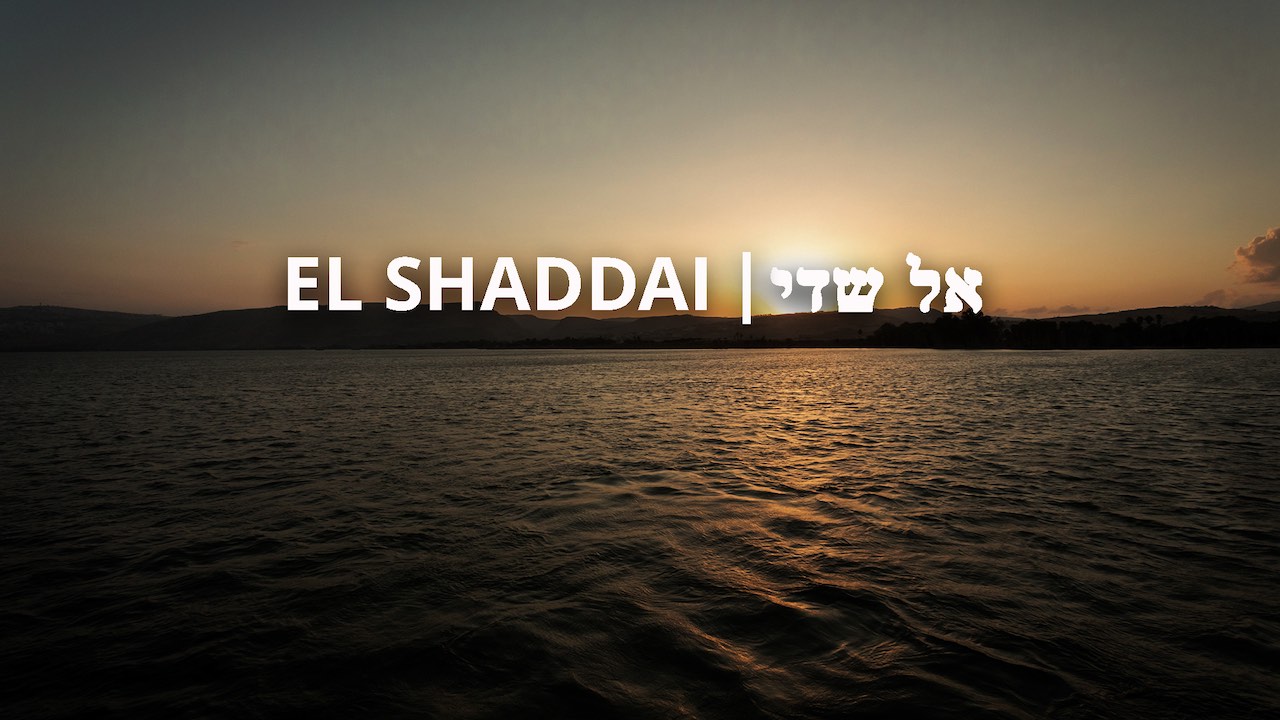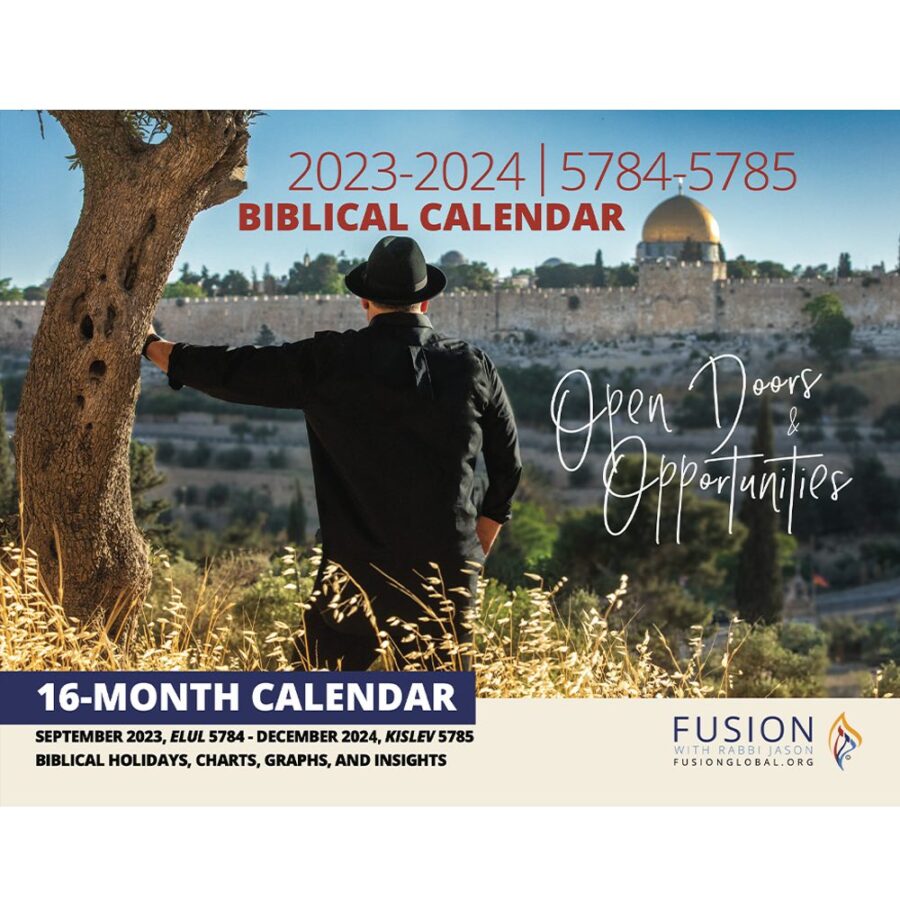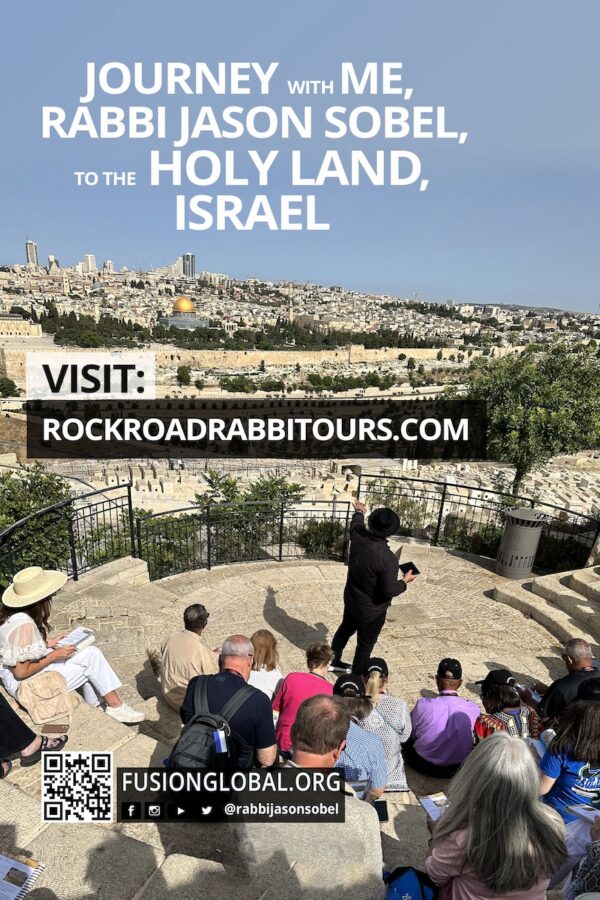El Shaddai (אֵל שַׁדַּי)—or just Shaddai—is one of the names of the God of Israel.
El Shaddai – God Almighty…but there is more


El Shaddai (אל שדי)—or just Shaddai—is one of the names of the God of Israel.
Popularized in the English-speaking world by the eponymous Amy Grant song, El Shaddai appears in the Bible seven times, or as just Shaddai an additional forty-one times. English translators typically (and conveniently) render El Shaddai as “God Almighty.” Its meaning is murkier and will require some verbal archaeology to uncover. Moreover, it is one of the few biblical names of God that is virtually absent from the Jewish liturgy, only finding its place when we read Psalm 91:1 in the evening service, “He who dwells in the shelter of Elyon, will abide in the shadow of Shaddai.”
Two words comprise this divine name: El (אל), which is a Hebrew and Ancient Near Eastern word for God, and Shaddai (שדי). This second word is most intriguing; consequently, we will spend most of our time exploring it. Like all Hebrew words, Shaddai derives from a three-letter root:
- ש / Shin (300)
- ד / Dalet (4)
- ד / Dalet (4)
According to Brown-Driver-Briggs (a well-regarded Hebrew lexicon), Shaddai means “to deal violently with, despoil, devastate, ruin.” And then, when dealing with our specific form of the word, BDB continues: “[to] deal violently not simply mightily.” This explanation gives us a good starting place into which to dig. What does it mean to be almighty and to deal violently?
Let us go back to the first usage of this name:
When Abram was 99 years old, Adonai appeared to Abram, and He said to him, “I am El Shaddai. Continually walk before Me and you will be blameless. My heart’s desire is to make My covenant between Me and you, and then I will multiply you exceedingly much.” (Genesis 17:1-2)
Many of us are familiar with this passage. Paul referred to it often throughout Romans and in his other letters as part of establishing the Messianic faith. Consider, “For the promise to Abraham or to his seed—to become heir of the world—was not through law, but through the righteousness based on trust…He is the father of us all (as it is written, ‘I have made you a father of many nations’). He is our father in the sight of God in whom he trusted, who gives life to the dead and calls into existence that which does not exist” (Romans 4:13-17). However, while this Messianic hope of resurrection may be the product, in a sense, this passage does not describe its spiritually militant beginning. For that, we must go a bit further back.
Sin was the problem…
Sin was the problem, and the earliest manifestation of its resolution began with God’s promise to Abraham. What the Messiah’s death, burial, and resurrection from the dead resolved originated with Adam and Eve’s sin in the Garden, but that brokenness peaked in a well-known story in Genesis 11:5-9:
Then Adonai came down to see the city and the tower that the sons of man had built. Adonai said, “Look, the people are one, and all of them have the same language. So this is what they have begun to do. Now, nothing they plan to do will be impossible. Come! Let Us go down and confuse their language there so that they will not understand each other’s language”…This is why it is named Babel, because Adonai confused the languages of the entire world there, and from there Adonai scattered them over the face of the entire world.
Dr. Michael Heiser, in his work The Unseen Realm, suggests that God essentially disinherited the world at the Tower of Babel. Thus, the covenantal program God started with Abraham and carried on through Israel, culminating in the Body of Messiah, was essentially a militant, if increasingly spiritual, reinvasion and reconquest of a world that was subjected to futility (cf. Romans 8:19-23).
In contrast to Israel’s early military conquests of ancient Canaanite nations (or tribes), our conflict in this current age is spiritual—not physical.
“For our struggle is not against flesh and blood, but against the rulers, against the powers, against the worldly forces of this darkness, and against the spiritual forces of wickedness in the heavenly places.” (Ephesians 6:12)
“For the weapons of our warfare are not fleshly but powerful through God for the tearing down of strongholds. We are tearing down false arguments and every high-minded thing that exalts itself against the knowledge of God.” (2 Corinthians 10:4-5)
Even though our fight is one of spirit and not of the body, we still serve a warrior-God.
“Let God arise! Let His enemies be scattered! Let those who hate Him flee before Him. As smoke is blown away, may You blow them away.” (Psalm 68:2-3)
“Then the Lord awoke as from sleep, as a warrior shaking off wine. He beat back His foes, putting them to lasting scorn.” (Psalm 78:65-66)
“Adonai is a warrior— Adonai is His Name! Pharaoh’s chariots and his army He has hurled into the sea, and his chosen captains have sunk into the Sea of Reeds… The enemy said, ‘I will pursue, I will overtake, I will divide the spoil. My lust shall gorge on them! I will draw my sword—my hand will destroy them.’ You blew with Your wind, the sea covered them.” (Exodus 15:3-10)
Let’s consider a final point.
Not only is our God a warrior, but He also delights in fighting on our behalf as we abide in Him. As we read in Proverbs 18:10, “The Name of Adonai is a strong tower. The righteous one runs into it and is set safely up high.” This connection between security and intimacy brings us back to Psalm 91:1-2, “He who dwells in the shelter of Elyon, will abide in the shadow of Shaddai. I will say of Adonai, ‘He is my refuge and my fortress, my God, in whom I trust.’” The rest of the Psalm details everything God will rescue us from.
The name El Shaddai thus invites us to abide in the God who fights on our behalf.
None of these biblical names are magical formulae or incantations a believer must invoke. Instead, they remind us how God has previously revealed Himself to His people. Theologians describe God as “immutable”—unchanging, consistent, and faithful. Hence, in light of His actions in history, we can rely on Him to act similarly today through His abundant love and grace. His abundant grace is the rational trust we read of in Psalm 91: when we face terrors that have no human answer, we can trust El Shaddai to hide us in His shadow and to fight, mightily and violently, on our behalf.
Albright, William (December 1935). “The Names Shaddai and Abram.” Journal of Biblical Literature. 54 (4): 180
Francis Brown, Samuel Rolles Driver, and Charles Augustus Briggs, Enhanced Brown-Driver-Briggs Hebrew and English Lexicon (Oxford: Clarendon Press, 1977), 995.
Michael S. Heiser, Unseen Realm: Recovering the Supernatural Worldview of the Bible (Bellingham, WA: LEXHAM PRESS, 2019), 128-131.
Ibid., 145-150, 300-321
"My life has been touched by this ministry. When the pupil is ready the teacher arrives, right? My faith needed revival! I discovered Rabbi Jason from The Chosen and ever since I have considered him my Rabbi as much as the pastor at my church. I have learned so much that I could have never done on my own! You are so right when you say we are missing half our inheritance! My eyes have been opened and my amazement never ceases! The numbers blow me away and seeing the hidden messages convinces me that only God's hands could have created the Bible and the secrets it holds. I will continue to contribute and follow the Torah portions faithfully as I do my church. I am looking forward to the Israel trip this Spring. Thank you to all of you for your hard work. It is truly appreciated."
What is Fusion with Rabbi Jason?
It is in looking back at what God has done that we can see forward to His future plans for us. “For I know the plans I have for you,’ declares the Lord, plans to prosper you and not to harm you, plans to give you hope and a future” Jer 29:11.
At Fusion Global with Rabbi Jason Sobel, we want to add definition to your faith as we restore the lost connection to our ancient roots and rediscover our forgotten inheritance.



